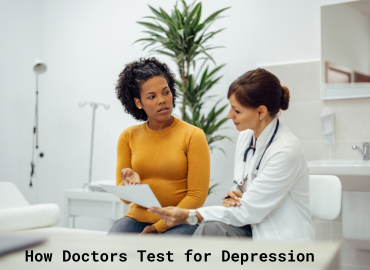How Doctors Test for Depression
When you’re feeling depressed, we recommend starting with your general physician to seek treatment. Today, we’ll detail why you should go to your doctor first and how your GP can help you before you see a specialist like a psychiatrist.
These are some symptoms of depression to tell your doctor about:
− Feeling like you’re in a fog all the time
− Fatigue
− Wanting to withdraw
− Feeling separated from others
− Losing interest in things you used to like
− Having a hard time going about your usual business
− Feeling guilty or ashamed
− Wanting to die
There can be apparent reasons for depression, like anxiety over losing a job, or no reason at all.
Depression can have reasons, but it doesn’t need them and can affect anyone at any age and any walk of life. Depression can be caused by or appear along with many maladies and should be given its own attention as well.
Here are some issues that can contribute to or worsen depression:
− Changing hormones, as with menopause, andropause, adolescence, or pregnancy
− Systemic lupus erythematosus, the most common type of lupus
− Schizophrenia
− PTSD (post-traumatic stress disorder)
− Taking certain medications like Clonazepam and Cyclosporine
− Sleep apnea
− Eating disorders
Checking for these issues is important when it comes to starting a treatment plan for depression. Other specialists will need to be included in the process, such as neurologists or somnologists, to create the most effective plan possible. The following are some of the tests physicians will perform during diagnostics.
A physical examination that includes a blood test. This will identify any mitochondrial dysfunctions that are common in depressive disorders. A blood test can also identify imbalances like too much glutamate
or too little folate. Also, a blood test can reveal conditions like hypothyroidism.
If the doctor can’t detect a major physical cause of your depressive symptoms, they will give you a
psychological evaluation. One part of a psychological evaluation is getting a detailed rundown of your symptoms, such as:
− When the symptoms started
− If you’ve had the feelings before
− How long the symptoms have been around
− How severe the feelings are
− How the symptoms are impacting your life
− If your symptoms have been treated, and if so, in what way
Another part of a psychological evaluation is checking out your family history to see if depressive disorders are common and how they have manifested. After these evaluations, the doctor can refer you to other specialists. Then, there will be a conversation recapping what was done, further plans, and general discussion about your needs and options.
Ask us about our services, including metabolic workups, by contacting us on our website or by calling us
at (585) 442-6960.




